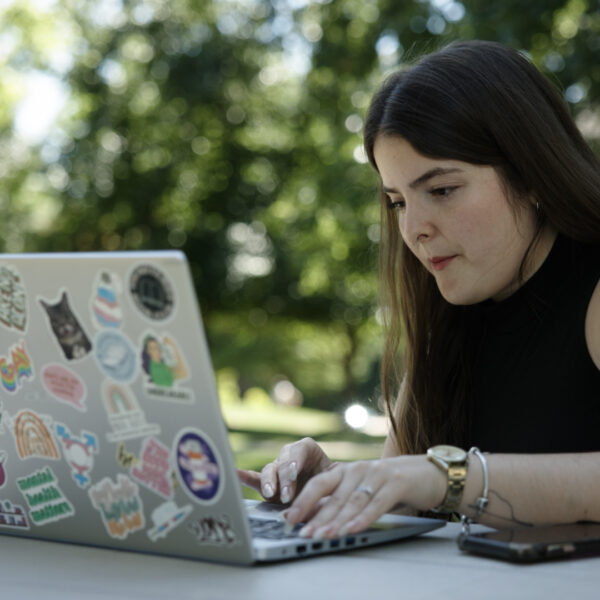Albion College Boosts Experiential Learning by Strengthening Community Partnerships

Why Community Partnerships Matter for Experiential Learning
Students who engage with real‑world challenges develop problem‑solving skills that classroom theory alone cannot deliver. At Albion College, the push to embed experiential learning into the curriculum is tightly coupled with creating sustainable relationships with local businesses, nonprofits, and civic groups. The result is a win‑win: students gain hands‑on experience, and community partners receive fresh ideas and volunteer support.
Insights from Larissa Botega’s FURSCA Project
Larissa Botega ’27, an international student from Brazil, led a Foundation for Undergraduate Research, Scholarship, and Creative Activity (FURSCA) study that examined how the college can improve communication with Albion’s community. Her research surfaced three critical obstacles: fragmented trust, misaligned schedules, and limited mutual resources.
1. Trust and Historical Context
Past disagreements have left some community members skeptical of new initiatives. Larissa’s interviews revealed that this wariness often stems from perceptions that the college “does for” rather than “does with” local stakeholders. Rebuilding confidence requires listening first and showing genuine interest in community priorities.
2. Scheduling and Operational Alignment
The academic calendar, staffing shifts, and seasonal business cycles rarely sync. When projects align too tightly with either side’s peak times, collaboration stalls. Flexible models—such as project cohorts that rotate every two semesters—have proven more resilient.
3. Resource Mismatches
Albion’s strengths lie in human capital; community partners sometimes lack financial or technological assets. By offering data‑analysis support, curriculum design assistance, and volunteer coordination, the college can offset gaps without transferring budgets.
Practical Recommendations for Building Last‑Standing Partnerships
Based on Botega’s findings, the following framework helps both Albion and community partners move from tentative contact to productive collaboration.
A. Start with Listening Sessions
- Schedule quarterly town‑hall meetings where community leaders outline current challenges.
- Record needs surveys and share summaries with campus stakeholders.
- Set a clear agenda: identify one priority issue per session.
B. Create a Central Communication Hub
Establish an online portal—such as a dedicated intranet page or a simple form—where businesses can submit project ideas. The portal should:
- Allow easy keyword tagging (e.g., “marketing,” “environmental health”).
- Show upcoming student cohorts and skill sets.
- Provide a status tracker for applicant submissions.
C. Develop Micro‑Internships and Service Projects
Short, focused projects (four to six weeks) are easier to schedule and manage. They also give students rapid, tangible results that partners can immediately value.
D. Embed Reflexive Feedback Loops
After each project, hold debriefs where students and partners evaluate outcomes. Document lessons learned and refine the process for the next cycle.
Case Study: A Successful Partnership in Local Agriculture
Albion partnered with a nearby organic farm to design a student‑led sustainability audit. Students applied environmental science coursework and data analytics techniques while the farm gained actionable insights on reducing water usage. The project ended with a published memorandum that the farm cited in its grant application—demonstrating clear value for both parties.
Key Takeaways from the Agriculture Initiative
- Early engagement: Students pitched ideas during a farm‑on‑campus workshop.
- Shared objectives: The farm wanted measurable water‑saving targets; students wanted a dataset to practice regression analysis.
- Co‑created documentation: A joint report highlighted both academic rigor and practical significance.
How Students Can Get Involved Today
Albion’s community‑centric approach is open to all students, regardless of major. By joining student organizations, taking advantage of the Honors Program, or volunteering with the Office of Campus Life, you can position yourself at the intersection of academia and community service.
Ready to take the next step in shaping your future and your community?
Apply now for Albion College and make a difference
Further Resources and How to Stay Informed
To keep up with the latest opportunities and research, explore Albion’s dedicated programs on experiential learning, FURSCA, and the Gerstacker Business Institute. Bookmark these pages and subscribe to the college newsletter.
Explore Albion College’s Experiential Learning Programs
Have questions or want to share your own experiences with community partnerships? Reach out through the contact form or write to us at [email protected].
Conclusion: A Path Forward for Students and Communities Alike
Albion College’s renewed focus on open communication and responsive collaboration demonstrates that experiential learning can be a powerful bridge between higher education and civic life. By listening to community needs, aligning schedules, and providing critical support, the college has created a replicable model that yields benefits for students, businesses, and the broader Albion region.
Consider how you—whether as a first‑year student, a senior developing capstone ideas, or a community leader seeking fresh talent—can play a role in this evolving partnership. The future of learning is interactive and interconnected, and Albion College is positioned to lead the way.
Want to join the conversation? Submit your questions or ideas via the partnership portal and see how Albion can help build a stronger community together.

